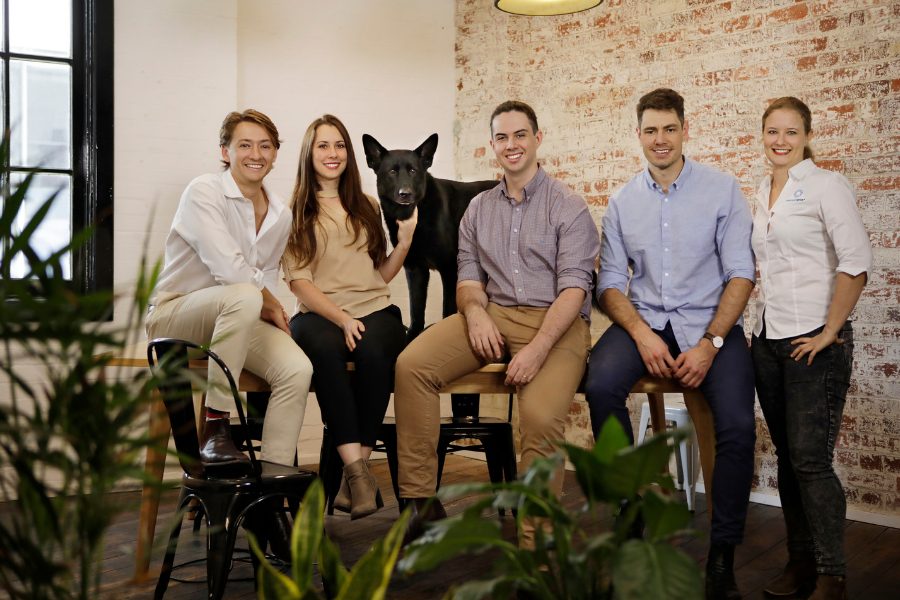According to the World Health Organisation, early detection of cancer greatly increases the chances for successful treatment. To help make screening for various cancers easier and more accurate is Brisbane startup Maxwell Plus.
As founder and CEO Dr Elliot Smith explained, the startup’s vision is to diagnose non-communicable, or noninfectious or transmittable, diseases accurately, to flag risk of disease, and in turn allow doctors to act faster.
The startup uses artificial intelligence to analyse medical data, from medical imaging to blood data and genomic data, to help clinical teams better understand that data as it pertains to a patient.
“Our initial focus is on prostate cancer, however we’re also looking at breast and lung cancer, as well as neurological conditions. While today there is no cure for these diseases, having an early diagnosis dramatically improves the chances of successful treatment,” Dr Smith said.
The startup was born out of Dr Smith realising, after completing his PhD in biomedical engineering at the University of Queensland, that academia wasn’t his calling.
“However, I still wanted to apply my passion of technology and medicine into something that was suited to the way I like to work. I thought where could the idea of using algorithms and machines to improve clinical outcomes be applied today, in a real and tangible way,” he explained.
As AI became more of a “talking point” across the industry, Dr Smith saw an opportunity to combine his knowledge of medical imaging and AI to make a difference.
“Our ultimate goal and purpose is to lead to better patient outcomes through the use of this technology by clinical teams,” he said.
This is key: Dr Smith admitted that an issue faced by many an AI startup is the perception that AI will replace jobs, however he said this is very much not what Maxwell Plus is about. Rather, the startup wants to work collaboratively with clinicians, giving them the tools they need to be able to care for patients as best they possibly can.
“AI is the next big medical tool, not the replacement for your doctor,” he said.
The technology works by applying AI algorithms to medical data and in turn, providing clinicians with indicators about whether a patient is at high risk of disease, Dr Smith explained.
With prostate cancer the startup’s initial focus – though the tech can also be applied to breast and lung cancer, and neurological conditions such as Alzheimer’s and dementia – the algorithms work to look for factors in the images and data that might be indicative of cancer.
“While Maxwell Plus looks through the same data that a doctor would look through, one of the benefits of computers is that they can do it much faster and with unfailing accuracy – they don’t get tired,” he said.
“The human eye can pick up certain factors in an image, and there’s no doubt that doctors do a great job at this. What Maxwell has found is that some of the signs of cancer are not things that human eyes are able to detect, and by having a computer put its view over the same data, it can find things that then help clinicians and compliment their skills, ultimately leading to better outcomes for the patient.”
The startup’s technology has been developed in hand with a number of funding and clinical partners: having gone through the River City Labs accelerator in Brisbane, Maxwell Plus then raised $3.4 million in funding from investors including Main Sequence Ventures, the CSIRO’s venture capital fund, and was awarded $1.1 million in funding from the Federal Government’s Cooperative Research Centre Projects grant.
The grant is funding the development and commercialisation of a platform to identify early-stage Alzheimer’s disease, with Maxwell Plus working on the project as part of a joint collaboration with I-MED, CSIRO and Austin Health.
Meanwhile, Maxwell Plus is working through the process to receive regulatory approval for its product, with the aim to roll it out with clinical partners across Australia and New Zealand in the first half of 2019.
“Networking was absolutely key in finding partners who share our vision. We then leveraged those networks to continue to find others both in Australia and abroad,” Dr Smith said.
“Through continually working with partners, we have ongoing feedback loops to ensure that we are creating a valuable and user-friendly platform that will benefit both clinicians and patients.”
As it looks to receive regulatory approval, the startup hopes to begin commercialising the product early next year.
“We’ll continue to work with national and international partners on exciting research opportunities. Our final goal is to commence work on future platforms.”
Image: the Maxwell Plus team. Source: Supplied.




















Trending
Daily startup news and insights, delivered to your inbox.